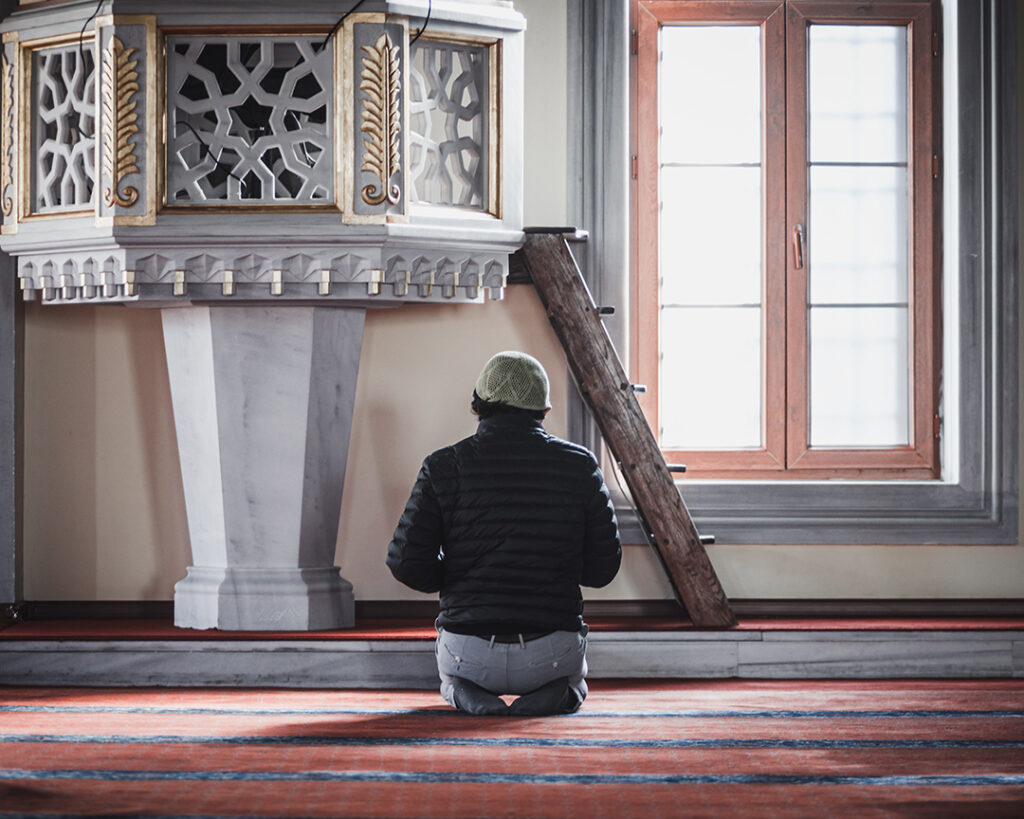Institutions or individuals – Islamophobia in the United Kingdom
Institutions or individuals – Islamophobia in the United Kingdom
While Rasmus Paludan may well have been prohibited from entering the UK, the government continues to face regular accusations of Islamophobia.
As he had planned, Rasmus Paludan’s burning of the Quran outside the Turkish embassy led to an international reaction. With his profile raised, in March 2023, the UK government announced it had placed Paludan on a ‘warnings index’, meaning he would not be allowed to enter the country.[1]
It is true that banning Paludan is a strong indication that the UK does not consider the burning of the Quran to be ‘freedom of speech’, as concluded by Swedish prosecutors.[2] However, the refusal to permit Paludan’s entry does little to combat the wider issue of Islamophobia in the country. Both institutions and the UK government have many questions to answer on why this type of discrimination is on the increase, far beyond far-right troublemakers such as Paludan.[3]
Paludan rejected entry to the UK
Over recent years, Rasmus Paludan has risen to become an influential figure among the Scandinavian far-right. On a number of occasions, he has practised the burning of the Quran, often sparking angered reactions from Muslims and leading to counter-protests.[4] [5]
Following a significant international backlash after his January event, Paludan announced in March 2023 that he intended to visit the British city of Wakefield, where he would burn the Quran.[6] The selection of Wakefield came after four students in a local school were suspended after one had brought a damaged copy of the Quran to school, with various pages covered in dirt. The student claimed he had done so as part of “a dare” and the school’s headteacher had claimed that “no malicious intent” had been involved.[7] However, the students involved did subsequently report having received death threats, leading the UK Home Secretary to express “deep concern” over the case.[8]
Whilst the specifics of the case are clearly complex, one thing is clear. Paludan’s claim that he would visit Wakefield in order to burn the Quran had the intention of deepening tensions in the local community. Conscious of this, the city’s MP Simon Lightwood was quick to express concern about Paludan’s plan, asking a question in the House of Commons about the subject. In response, Tom Tugendhat, Minister of State for Security, responded that Paludan had been added to the ‘warnings index’, meaning he would not be permitted to enter the country.[9]
Islamophobia within the party
While the UK decision to deny entry to Paludan will help to avoid adding to tensions in Wakefield, it also presents a problem. On the one hand, the UK government has shown that it is not willing to tolerate individuals who commit intentionally provocative acts such as burning the Quran. However, the reality is that in recent years this government has been widely criticised for not only failing to take action to combat Islamophobia, but in fact deepening the problem itself.
First and foremost, the Conservative Party, which has been in power since 2010, has in recent years been the focus of a number of allegations relating to Islamophobia. In 2021, a report into Islamophobia within the party’s membership described “anti-Muslim sentiment” as a problem in the party.[10] Meanwhile, in 2018, former Prime Minister Boris Johnson published an article saying Muslim women looked like “bank robbers” and “letter boxes.”[11] More recently, former Conservative minister Nus Ghani made a complaint saying that her faith had been mentioned by the chief whip as a reason for why she was demoted in 2022. An internal investigation said the complaint could not be proved, and therefore no action was taken.[12]
Islamophobia at the institutional level
Yet issues of Islamophobia cannot solely be associated with either members or individual politicians when policies of the government itself have been criticised as being Islamophobic. In recent weeks, the Home Secretary Suella Braverman has faced sharp criticism for comments in which she directly blamed “gangs of Pakistani British men” for issues of child abuse in the UK.[13] In 2022, the UN’s special rapporteur said that the UK’s anti-terrorism strategy, Prevent, was having a “negative and discriminatory effect on Muslim communities.”[14] Meanwhile, in February 2023, numerous civil society groups published an open letter regarding the question of migration, saying the government had “failed to adequately address the dangers posed by Islamophobia and racism against vulnerable people seeking protection and racialised communities in the UK.”[15]
What these criticisms suggest is that rather than Islamophobia being an issue which stems solely from radicals such as Paludan, it is in fact a deeply held part of the most important British institution – the government. Yet even beyond the government, there are worrying signs.
In July 2022, the first report looking at the subject of attacks on mosques and Islamic institutions revealed that 42% had suffered attacks in the last three years. Whilst this statistic demonstrated the extent of Islamophobic attacks, there was a perhaps even more worrying one. Of those places that had been attacked, only 55% said they were satisfied with the police response to the attack. Meanwhile, 38% reported that no police action was taken after they reported the attack. A further 15% did not even report the attack to the police, after assuming that the forces would take no action.[16] These numbers lay bare the degree to which there is distrust between Islamic communities and the police force, as well as the UK government.
Major change needed
Evidently, while stopping individual provocateurs like Paludan is important, tackling Islamophobia in the United Kingdom requires major change at the institutional level. Not only is the problem growing on the Conservative Party’s watch, but the government is itself accused of worsening the problem. With UK elections likely in 2024, it seems unlikely that the current government will change course on this issue, meaning that the necessary policies may still be a long way off from being implemented.
Interested in similar topics? Go to our Dashboard to learn more.
Sources
[1] Danish-Swedish far-right leader denied entry to UK to burn Qur’an
[2] Swedish prosecutor decides not to open investigation into Quran burning – Türkiye News
[3] Islamophobic hate crime rising in UK: Head of Muslim foundation | Daily Sabah
[4] Danish Man Who Burned Quran Is Prosecuted for Blasphemy – The New York Times
[5] In Sweden, violence over far-right group’s anti-Muslim rallies, Koran burning – The Hindu
[6] Far-right Danish politician who wanted to burn Quran in Yorkshire after ‘blasphemy’ incident banned from the UK
[7] Four Wakefield pupils suspended after Quran damaged at school – BBC News
[8] Police speak to child about death threats after Quran damaged at Wakefield school – BBC News
[9] Danish-Swedish far-right leader denied entry to UK to burn Qur’an
[10] Tory Islamophobia inquiry: Anti-Muslim sentiment ‘remains a problem’ within Conservative Party, report finds | Politics News
[11] Boris Johnson faces criticism over burka ‘letter box’ jibe – BBC News
[12] Nus Ghani: No action after Tory Islamophobia sacking probe – BBC News
[13] UK Home Secretary accused of racism and Islamophobia against Pakistanis
[14] UK’s ‘Prevent’ strategy has ‘negative and discriminatory effect on Muslim communities’
[15] UK government must address Islamophobia, violence against asylum seekers | Arab News
[16] UK’s first-ever survey details attacks on mosques, Islamic bodies | Islamophobia | Al Jazeera






